Search titles
Displaying results 51 to 60 of 1096.
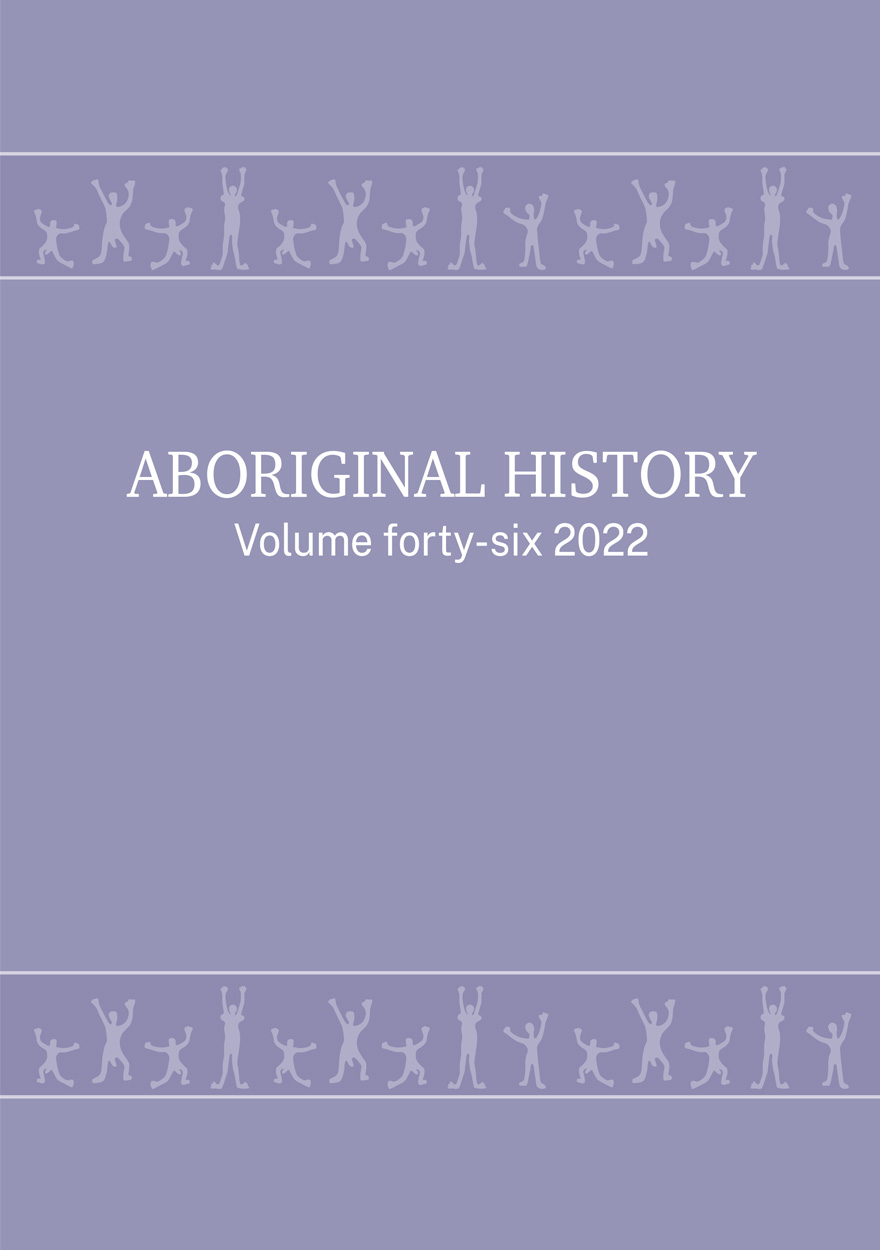
Aboriginal History Journal: Volume 46 »
Edited by: Crystal McKinnon, Ben Silverstein
Publication date: July 2023
The articles in Volume 46 each take provocative and generative approaches to the challenge of historical truth-telling. Examining the public memory of massacres in Gippsland, Victoria, Aunty Doris Paton, Beth Marsden and Jessica Horton trace a history of contestation between, on the one hand, forms of frontier memorialisation articulated to secure colonial possession and, on the other, the sovereign counter-narratives of Gunai Kurnai communities. Heidi Norman and Anne Maree Payne describe Aboriginal campaigns to repatriate Ancestors’ stolen remains over the past fifty years, showing how these campaigns have proceeded along with and as part of nation-building movements towards land rights and self-determination. Their call for Aboriginal relationships with Ancestors to be represented in a National Resting Place aligns their research with these movements. We return to Gunai Kurnai Country in a piece authored by Rob Hudson and Shannon Woodcock, who show how the Krowathunkooloong Keeping Place has formed an important site and tool of community work towards cultural resurgence; the article itself demonstrates the value and importance of collaborative and co-designed research methods. The volume then includes a conversation between Laura McBride and Mariko Smith about their curation of the Australian Museum’s Unsettled exhibition, through which they responded to the 250th anniversary of Cook’s Endeavour voyage along Australia’s east coast by telling true stories that put Cook in his place.

Australian Journal of Biography and History: No. 7, 2023 »
Special Issue: Convict Lives
Publication date: June 2023
This special issue of the Australian Journal of Biography and History explores the lives of convicts transported to Australia and asks how they can be investigated through various forms of biography. Given the ever-increasing range of methodologies for researching convict lives, this issue offers a timely reflection on their varying strengths, limitations and functions as well as on the future of convict history research. Nine refereed articles and two research notes provide new insights into various aspects of convict lives and experiences, combined with broad discussions on methodology.
In their introductory article, Matthew Cunneen and Malcolm Allbrook delve into the history of convict biography and the ways previous historians have attempted to explore and understand such lives. To overcome the gaps and silences in the archives, they argue, historians of convict Australia should employ a range of methodologies that each have their own particular domains of enquiry. In her research note, Janet McCalman reflects on the historiographical discoveries that have been made possible by the digitising, indexing and linking of convict records. She calls for future researchers to continue the work behind large datasets so that one day a fully comprehensive database of convicts can be created. Adopting a more fine-grained approach, Jennifer Bird reconstructs in detail from the archives the penal life of the convict Robert Edward Knox. Her analysis of Knox demonstrates an alternative to big-data approaches for understanding convict agency.
With a similarly refined scope—though one that looks at the convict system from the outside in—Jennifer Brookes examines the struggles of Lydia Anne to join her transported husband, Laurence Hynes Halloran, in Australia. Brookes’s article suggests that historians might consider how contemporary understandings of convicts can be enhanced by studying the lives of non-convicts associated with transportation. Matthew Cunneen reconstructs the lives of three convicts to further inform the experiences of people of colour under transportation. He argues for collective biography as a way of bridging the methodological shortcomings of purely biographical and prosopographical approaches. In the first large-scale study of the subject, Patricia Downes examines the social and legal conditions that saw freely arrived British soldiers sentenced to transportation within the Australian colonies. Complicating old narratives of the soldiers as contaminated by the convicts around them, she explores how military crimes resulting in transportation were sometimes driven by desires for freedom from military life and to protest service conditions.
Christine Fernon reports in her research note on the progress made in the National Centre of Biography’s First Three Fleets and Their Families project, an ambitious intergenerational study of Australia’s early colonial history. The preliminary findings give a sense of the insights that the project will provide into how convict lives formed the fabric of Australian colonial history. Kristyn Harman and Anthony Ray explore the intergenerational effects of the convict system through the experiences of three convicts of colour. In analysing these lives, they contribute to our understanding of interracial marriage, family formation and recidivism in Van Diemen’s Land. Hamish Maxwell-Stewart, David Andrew Roberts and Mark McLean draw on a wealth of convict records to show the potential of using big data to analyse thousands of convict lives in parallel. Doing so would allow the individual to be contextualised within the greater population and would present opportunities for temporal and spatial analysis, thereby deepening understandings of British criminal management.
Visually illustrating the potential of big data in studies of convict protest and collective biography, Monika Schwarz examines collective resistance networks in female factories in Van Diemen’s Land. She draws together the stories of previously unconnected women and uncovers episodes of resistance. Returning convict history to its material origins, Richard Tuffin, Martin Gibbs, David Roe and Sylvana Szydzik draw on archaeological methods of digital technology to recontextualise convict lives. By mapping sites of convict labour and quantifying the outputs from them, the authors collectively argue that adopting multi-scalar and multidisciplinary approaches to studying convict environments can deeply enhance the histories of those who were involved with them. This issue deepens understandings of Australia’s convicts, the lives they led and the ways historians can best study them.

East Asia Forum Quarterly: Volume 15, Number 2, 2023 »
Publication date: June 2023
Global trade stands at a crucial crossroads. The multilateral trading system that underpinned globalisation for three-quarters of a century is being pulled apart by big power politics and the way forward is fogged in mistrust. Global growth is projected to decline this year and remain anaemic. Inflation, the rising rivalry between the world’s two largest economies, and Russia’s invasion of Ukraine weigh heavily on the global outlook. The European war underscores how quickly the trading ties between nations might be undone and weaponised. This issue of East Asia Forum Quarterly examines the impact of trade sanctions as they rip into the trading system well beyond the battlefield. It interrogates how far sanctions have succeeded in hobbling Russia’s war machine and questions their deterrent value outside of conflict or their universal application, explores how supply chains have reshuffled around the reach of regulators, and asks how nations are probing opportunities created by the conflict.
Download for free
Not available for purchase
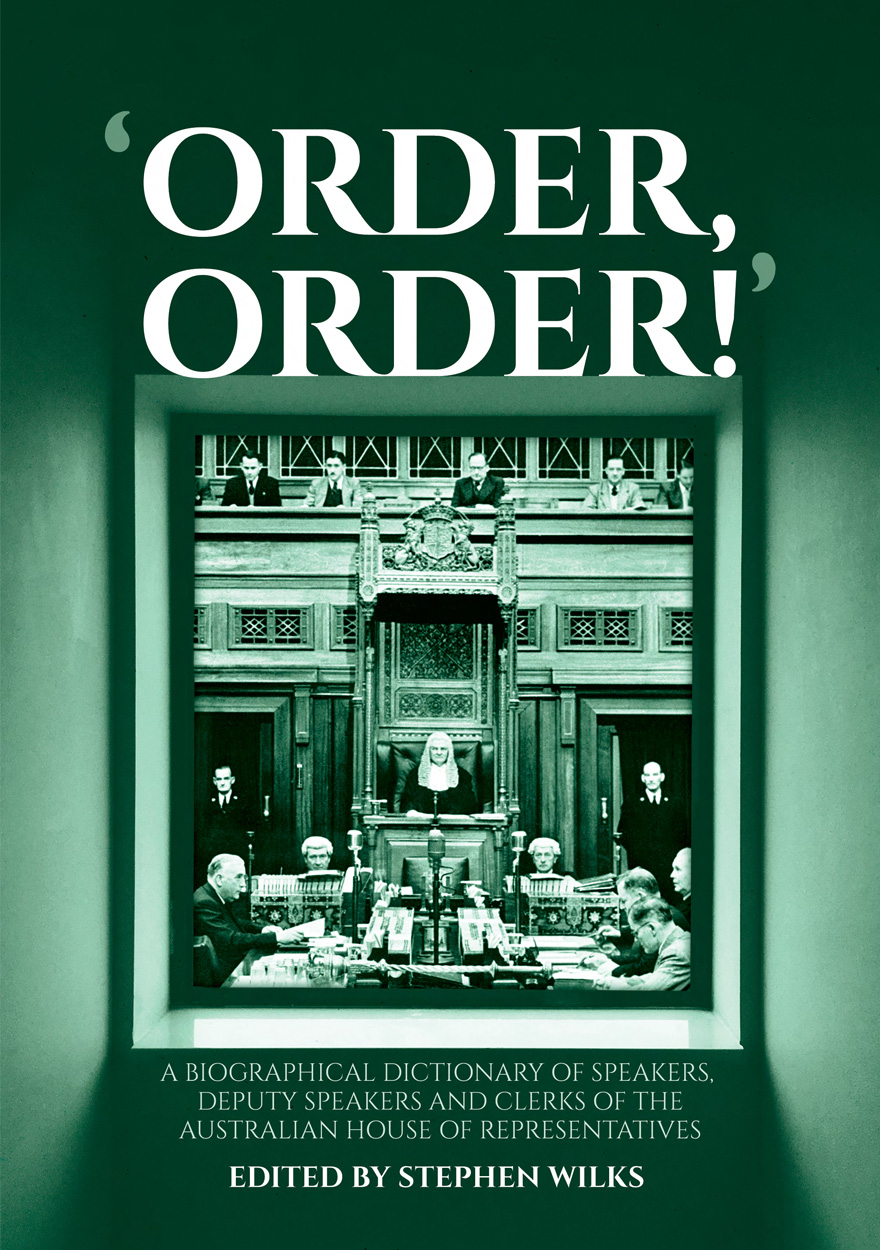
‘Order, Order!’ »
A Biographical Dictionary of Speakers, Deputy Speakers and Clerks of the Australian House of Representatives
Edited by: Stephen Wilks
Publication date: May 2023
‘Order, Order!’: A Biographical Dictionary of Speakers, Deputy Speakers and Clerks of the Australian House of Representatives shines a first-ever historical light on the remarkable men and women who have served in these national offices since Federation.
The Speakers include Frederick Holder, whose campaign to embed a Westminster-style Speakership died with him when he collapsed dramatically in the parliament; the much-loved Joan Child, Australia’s first female Speaker, whose struggles as a widow with five children fostered her commitment to social justice and made her, in the words of another Speaker, Anna Burke, ‘pretty fierce’; and Ian Sinclair, a warhorse of a parliamentarian who seemed to prove the poacher-turned-gamekeeper principle. The Deputy Speakers, a particularly eclectic assortment, include the strange and bleakly serious James Fowler, who once hopefully mailed a film synopsis to the American director Cecil B. DeMille and who ended his days warning of the perils of democracy. Amongst the Clerks are Frank Green, who, at the height of the Cold War, indiscreetly befriended members of the Communist Party, and the popular Jack Pettifer—a true child of parliament—who grew up in an apartment in the building.
This book includes analysis of what sorts of individuals typically filled these vital parliamentary positions, and the appearance of an Australian model of the Speakership based on pragmatic compromise. All three offices are typically more than just creatures of political parties—something that Australians should be prepared to defend against the remorseless encroachment of political partisanship.
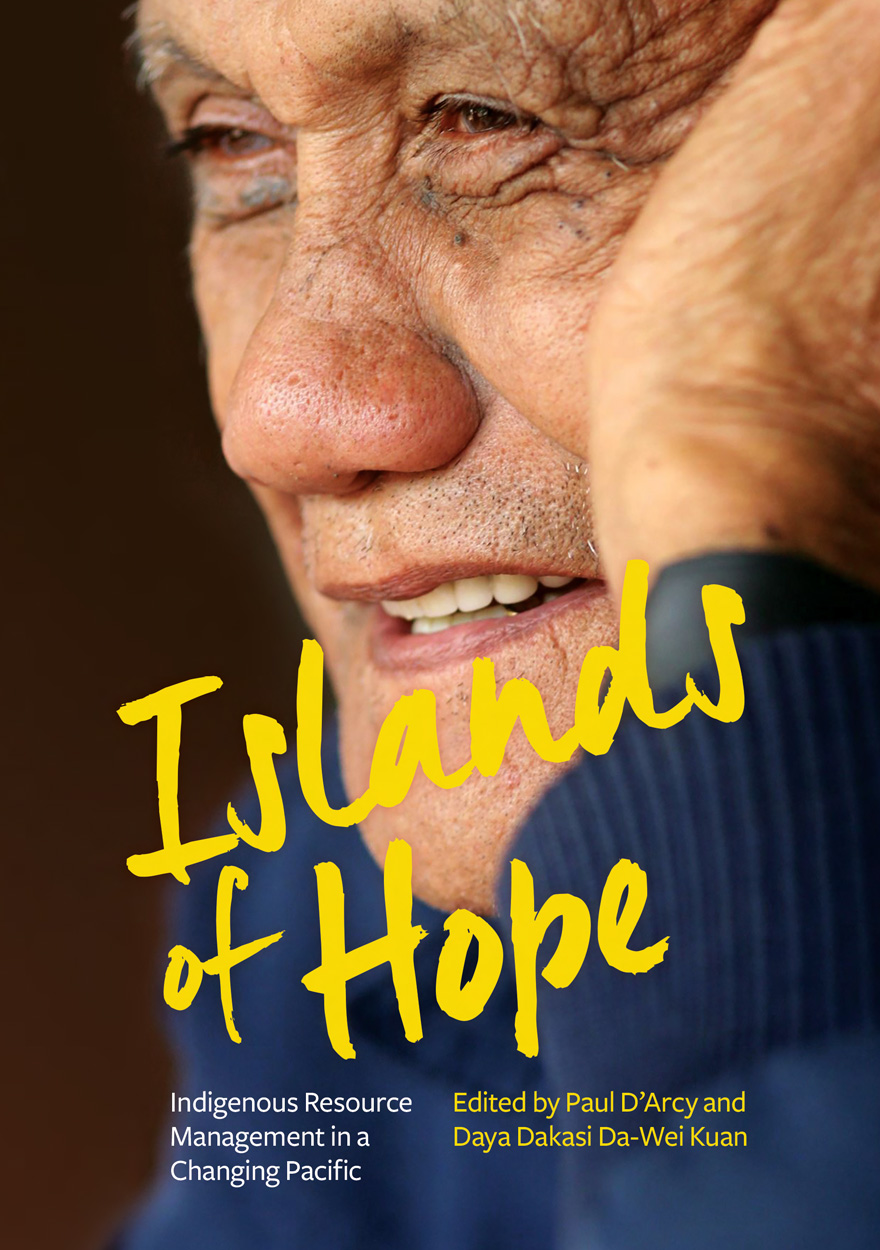
Islands of Hope »
Indigenous Resource Management in a Changing Pacific
Edited by: Paul D’Arcy, Daya Dakasi Da-Wei Kuan
Publication date: May 2023
In the Pacific, as elsewhere, indigenous communities live with the consequences of environmental mismanagement and over-exploitation but rarely benefit from the short-term economic profits such actions may generate within the global system.
National and international policy frameworks ultimately rely on local community assent. Without effective local participation and partnership, these extremely imposed frameworks miss out on millennia of local observation and understanding and seldom deliver viable and sustained environmental, cultural and economic benefits at the local level.
This collection argues that environmental sustainability, indigenous political empowerment and economic viability will succeed only by taking account of distinct local contexts and cultures. In this regard, these Pacific indigenous case studies offer ‘islands of hope’ for all communities marginalised by increasingly intrusive—and increasingly rapid—technological changes and by global dietary, economic, political and military forces with whom they have no direct contact or influence.
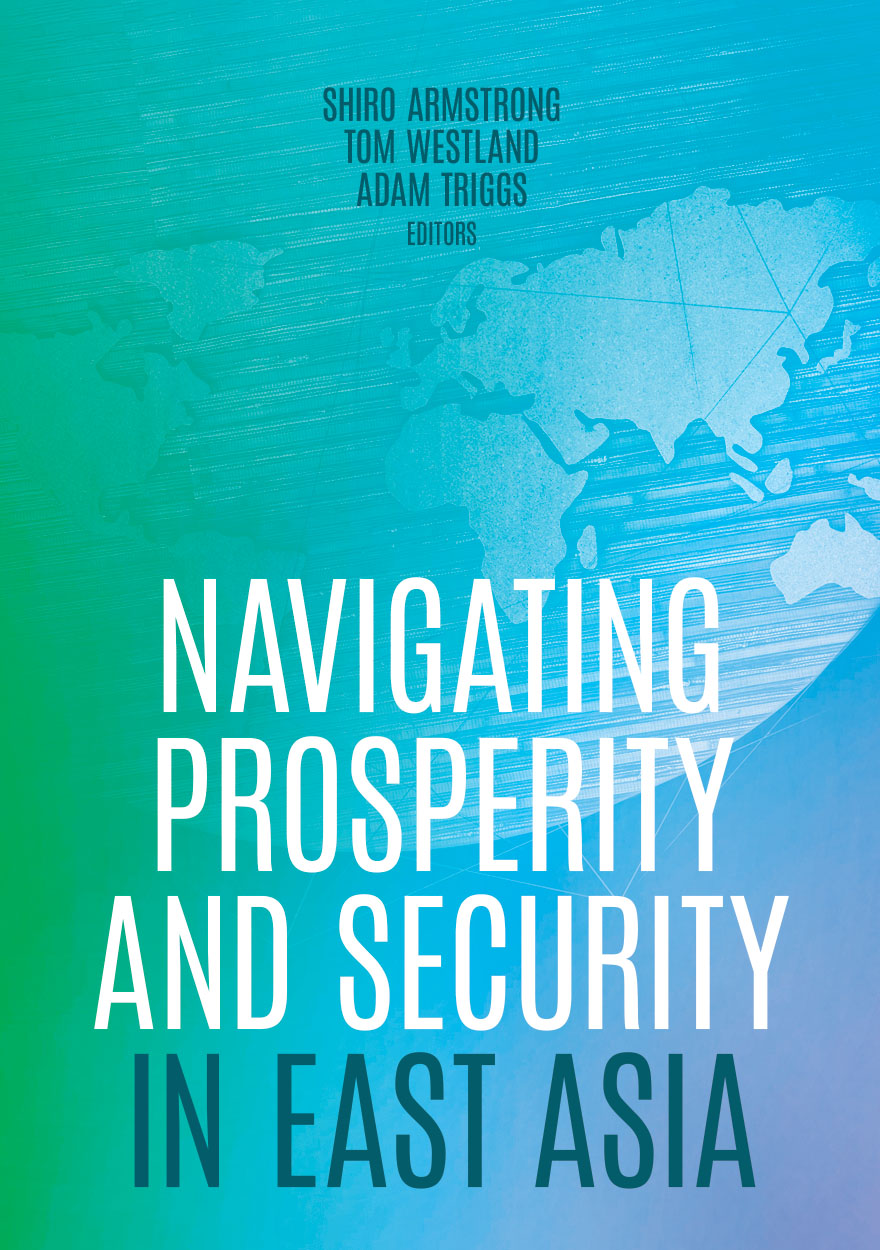
Navigating Prosperity and Security in East Asia »
Publication date: May 2023
The world’s two largest economies, the United States and China, are locked in a trade war, complicating policy choices internationally. These choices are sharper for the countries of East and Southeast Asia than they are elsewhere, because the multilateral rules-based economic order on which East Asian economic integration and cooperation is built is under threat.
Economic policy has never been separate from security considerations. For decades, the national security risks inherent in economic exchange have been mitigated under a US-led system that allowed the strengthening of economic ties, including between China and the rest of the world. But economics and security are increasingly entangled in a way that is damaging to both, creating a dangerous trade-off. Now, as global uncertainties grow, the risks of international exchange—rather than its benefits—are beginning to dominate the calculus for some policymakers.
Against this backdrop, how can Southeast Asian countries and US allies in Asia balance their security interests and their economic interests? And how can these countries, individually and collectively, broaden their policy options and deepen economic integration? This volume investigates the domestic and international dimensions of these questions.
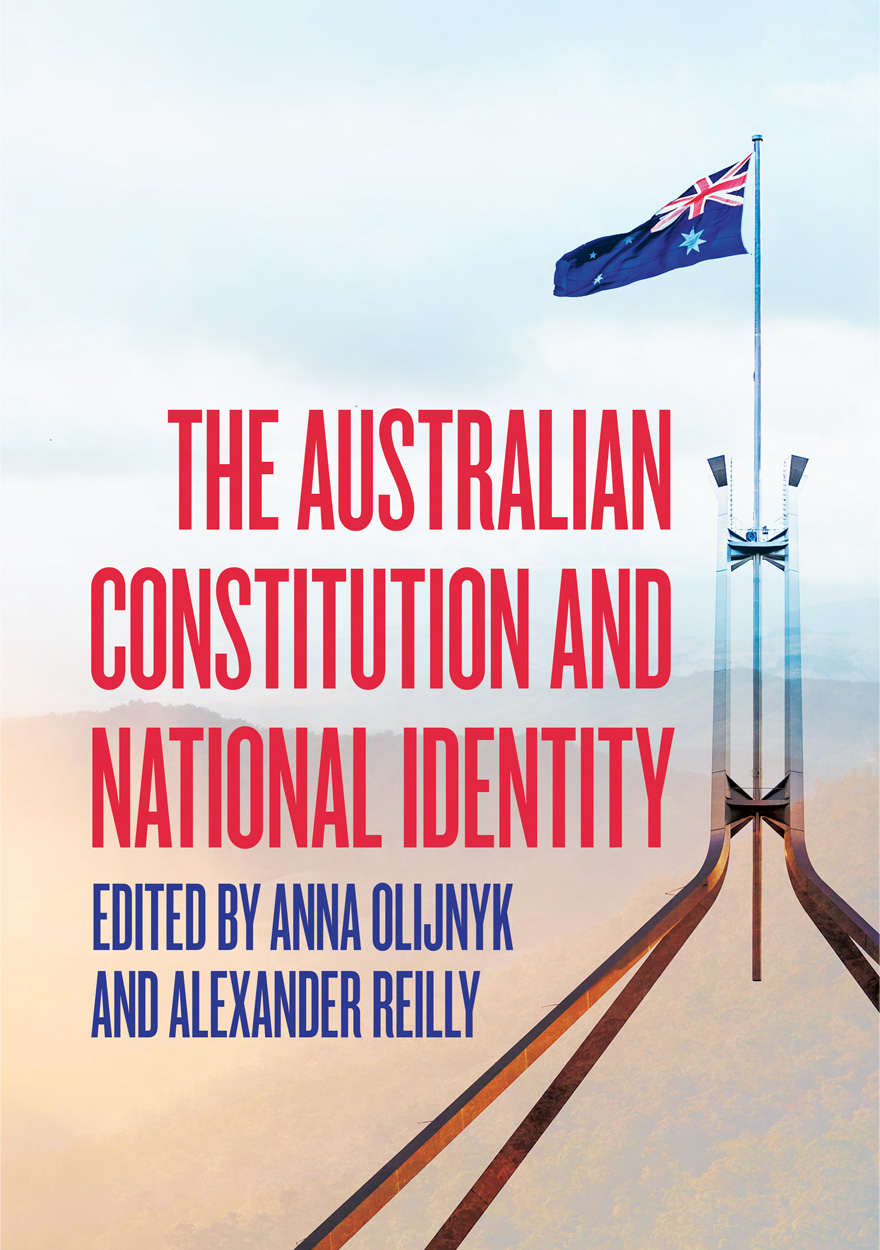
The Australian Constitution and National Identity »
Edited by: Anna Olijnyk, Alexander Reilly
Publication date: May 2023
What does Australia’s Constitution say about national identity? A conventional answer might be ‘not much’. Yet recent constitutional controversies raise issues about the recognition of First Peoples, the place of migrants and dual citizens, the right to free speech, the nature of our democracy, and our continuing connection to the British monarchy. These are constitutional questions, but they are also questions about who we are as a nation.
This edited collection brings together legal, historical, and political science scholarship. These diverse perspectives reveal a wealth of connections between the Australian Constitution and Australia’s national identity.
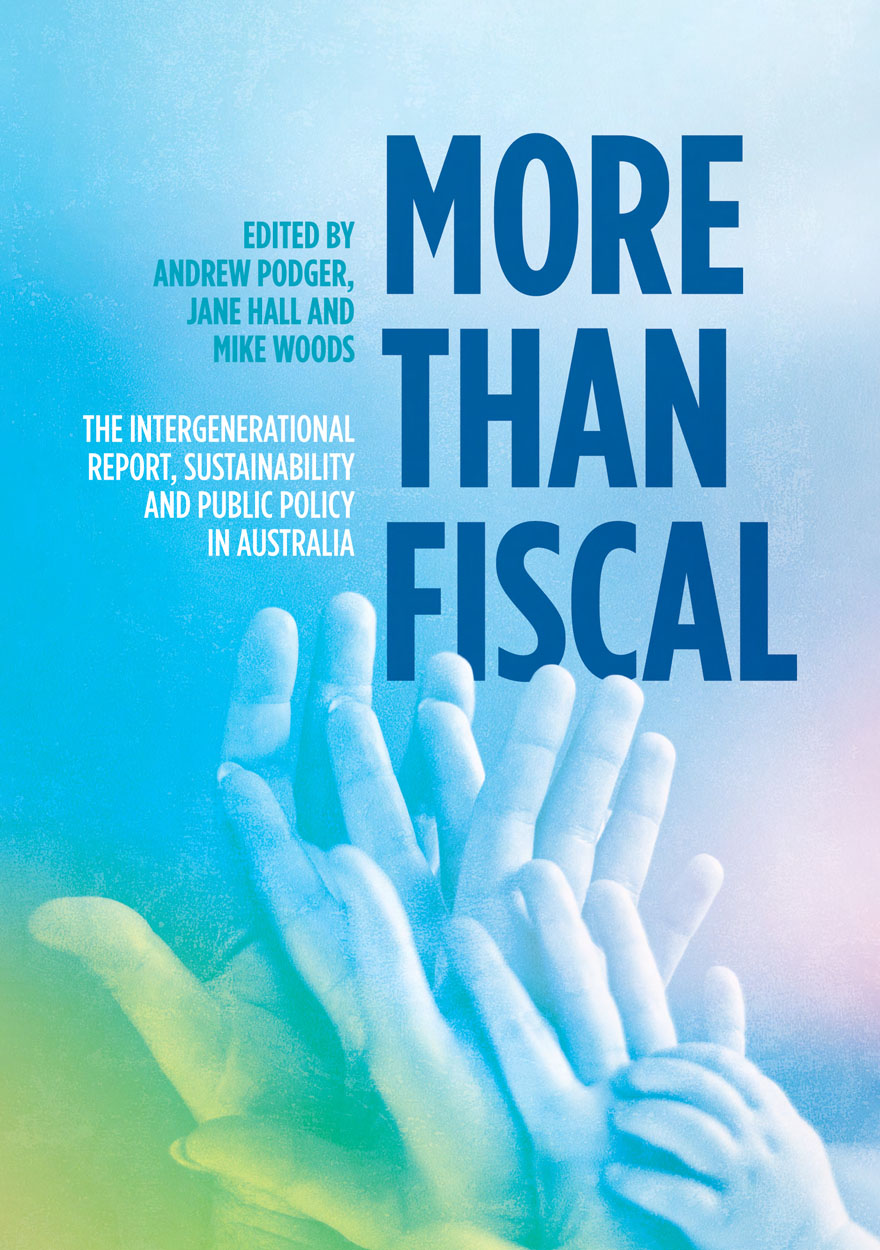
More Than Fiscal »
The Intergenerational Report, Sustainability and Public Policy in Australia
Publication date: May 2023
Every five years, the Australian treasurer is required to publish an intergenerational report (IGR), which examines the long-term sustainability of current government policies and seeks to determine how demographic, technological and other structural trends might affect the economy and the budget in coming decades. Despite these lofty objectives, the five IGRs produced from 2002 have received only muted applause. Critics say that they are too mechanical, too narrow and too subject to the views of the government of the day and that they don’t provide the intended wake-up call for public understanding of looming economic, social and environmental issues.
This analysis of the most recent IGR (2021) is based on a workshop hosted by the Academy of the Social Sciences in Australia. While finding that the 2021 IGR is an improvement on the previous report (2015), the authors identify several fiscal and broader policy issues that deserve greater attention, including Australia’s structural deficit, rising inequality and the impacts of climate change. They argue that the report fails to discuss the policies required to support greater resilience against future shocks, including the case for earlier budget repair. They propose that future IGRs be prepared with greater independence, cover all levels of government, have more transparent analysis and draw upon a wider ‘wellbeing’ approach to long-term sustainability.
This book aims to attract close attention from public officials and politicians and generate constructive debate in the community.
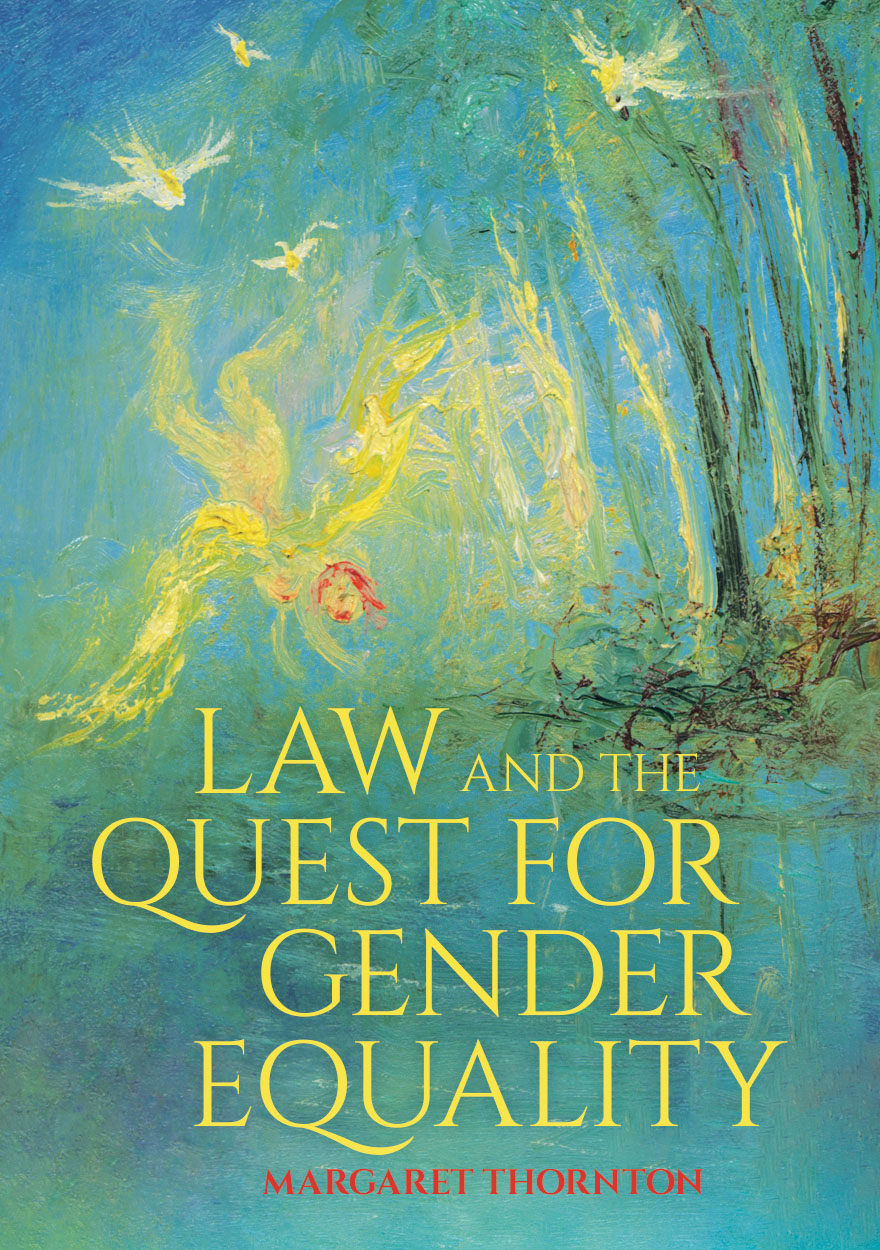
Law and the Quest for Gender Equality »
Authored by: Margaret Thornton
Publication date: April 2023
For centuries, law was used to subordinate women and exclude them from the public sphere, so it cannot be expected to become a source of equality instantaneously or without resistance from benchmark men—that is, those who are white, heterosexual, able-bodied and middle class. Equality, furthermore, was attainable only in the public sphere, whereas the private sphere was marked as a site of inequality; a wife, children and servants could never be the equals of the master. Despite their ambivalence about the role of law and its contradictions, women and Others felt that they had no alternative but to look to it as a means of liberation.
This skewed patriarchal heritage, the subtext of this collection of essays, has continued to impede the quest for equality by women and Others. It informs not only gender relations in the private sphere, as illustrated by domestic violence and sexual assault, but also the status of women in the public sphere. Despite the fact that women have entered the paid workforce—including the professions—in large numbers, they are still expected to assume responsibility for the preponderance of society’s caring. The essays show how maternal and caring roles, which are still largely viewed as belonging to an unregulated private sphere, continue to be invoked to detract from the authority of the feminine in the public sphere. The promise of antidiscrimination legislation in overcoming the heritage of the past is also shown to be somewhat hollow.
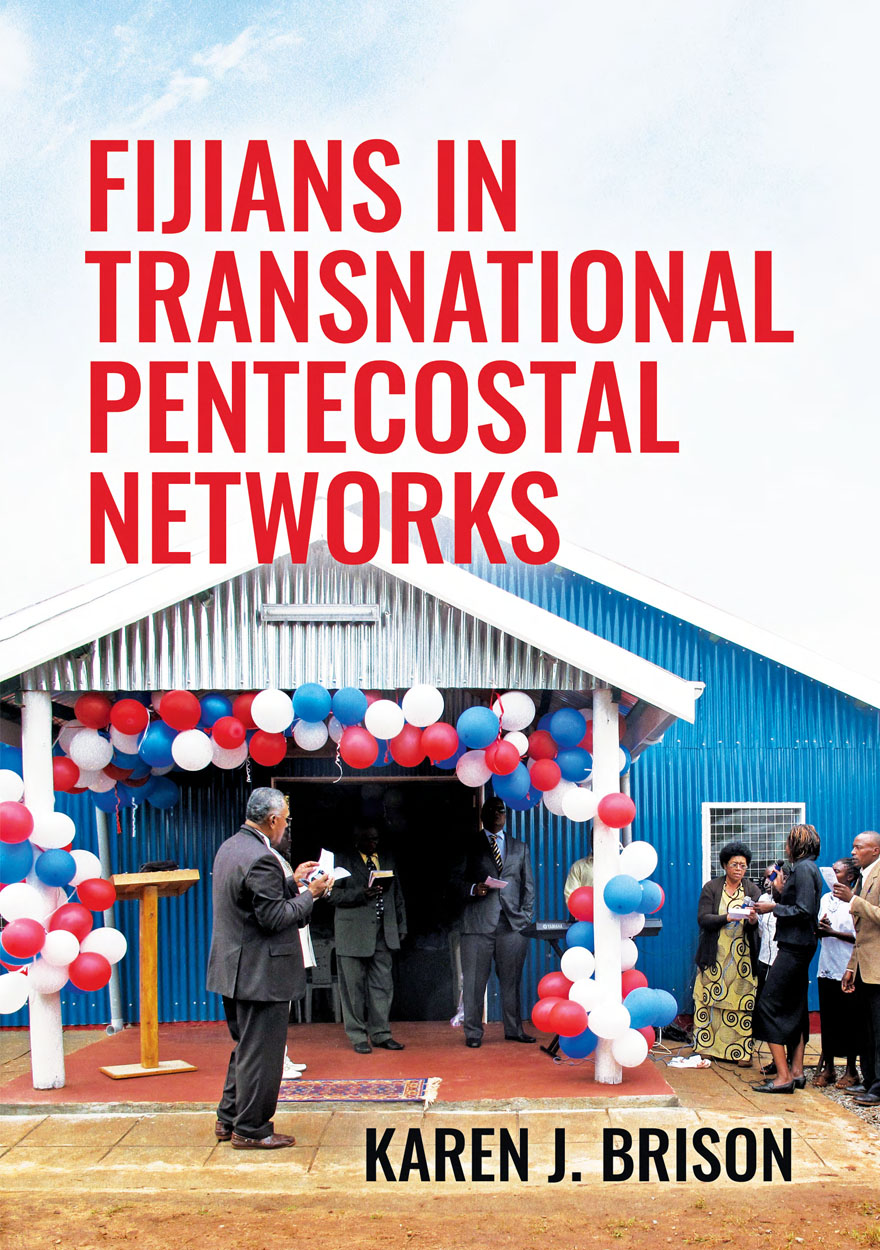
Fijians in Transnational Pentecostal Networks »
Authored by: Karen J. Brison
Publication date: April 2023
In Fijians in Transnational Pentecostal Networks, Karen J. Brison examines the Harvest Ministry, an independent Fijian Pentecostal church that sends Fijian and Papua New Guinean missionaries to East Africa, Southeast Asia, Europe and elsewhere. After studying the ministry’s main church in Suva for several years, Brison visited its missionaries and their local partners in East Africa and Papua New Guinea. The result of those visits, this book provides an unusual insight into Pentecostal churches in the global south, arguing that they seldom produce novel visions of Christianity and world inequality. It also offers new perspectives, by situating Pacific island churches within a global community and by examining social class formation, which is increasingly important in the Pacific.
Pentecostalism has a consistent culture all over the world, but shared themes take on different meanings in the face of local concerns. In Fiji, Pentecostal churches are part of middle-class projects constructing leadership roles and highlighting transnational ties for a growing group of indigenous urban professionals. In Papua New Guinea, church leaders promote the idea that youths with blocked aspirations are tough and humble and therefore make invaluable missionaries. In East Africa, Pentecostal churches are part of a networking strategy that entrepreneurial individuals see as essential to survival. As these local groups each use Pentecostalism to advance their own agenda, they endorse Euro-American racial stereotypes and ideologies about social evolution and progress.



